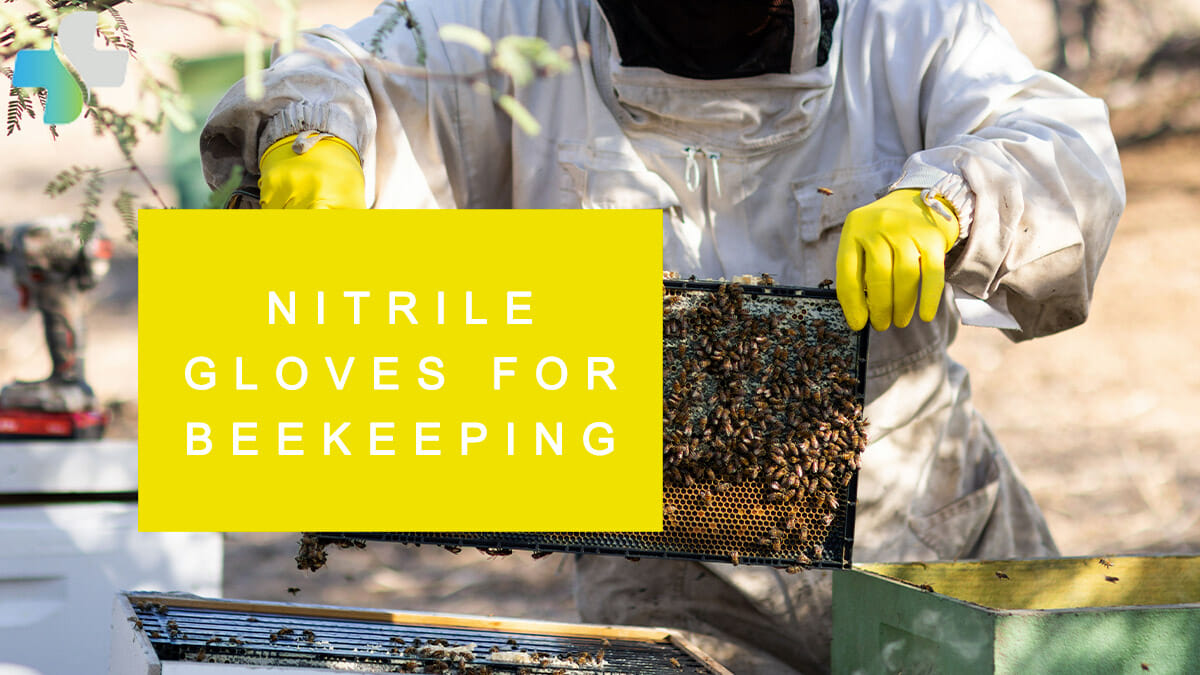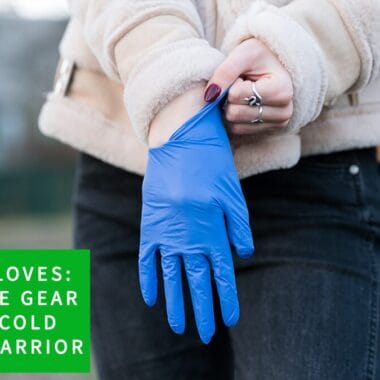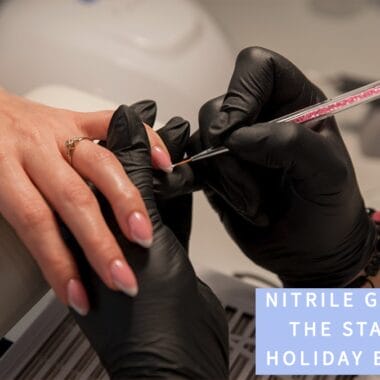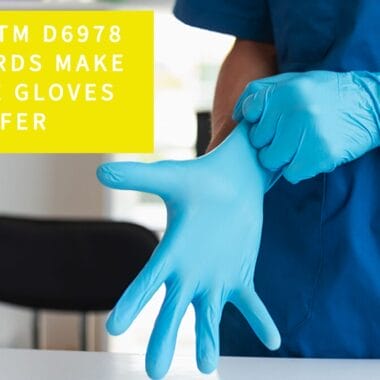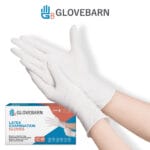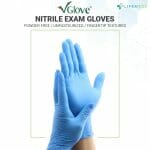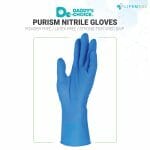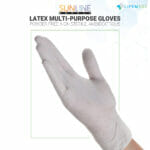Wearing robust personal protective equipment (PPE) gloves protects your skin from irritation, scrapes, germs, or harmful chemicals. For beekeepers that want to protect their hands while on the job, purchasing the best gloves for all aspects of beekeeping is essential.
Choosing the Best Beekeeping Gloves
When purchasing the best gloves for beekeepers, you want to ensure the gloves have adequate protection and offer a good range of motion. A beekeeper needs a pair of gloves that can protect their skin from bee stings and the outside heat. During the warmer months, a beekeeper’s job can be incredibly tiresome. Beekeepers commonly wear thicker gloves for additional protection, which causes their hands to produce more sweat and moisture, adding discomfort and skin irritation. Beekeepers commonly wear leather gloves, although their thickness doesn’t allow for an accessible range of motion or a textured grip. Finding the best protective beekeeping gear that protects from beestings and provides comfort and safety is made easy with nitrile gloves.
Wearing Nitrile Gloves for Beekeeping
Nitrile gloves are powder-free and latex-free gloves commonly used in the medical industry, manufacturing, automotive, beauty, and beekeeping. Nitrile is a synthetic, puncture-resistant material that provides users with guaranteed hand protection through a wide range of tasks requiring extra strength. Wearing nitrile gloves for beekeeping offers more protection than other gloves for keeping bees, including latex, vinyl, or leather gloves. Nitrile disposable gloves are convenient for beekeepers to wear in warm temperatures due to the buildup of sweat and perspiration on the hands. Choosing nitrile gloves for beekeeping has many benefits and advantages due to their excellent dexterity and durability.
Nitrile Gloves vs. Other Glove Options for Beekeepers
When looking for the best protective gear for beekeeping, nitrile gloves offer a well-balanced combination of benefits for protecting beekeepers’ hands. While nitrile gloves are an ideal choice for protective gear in beekeeping, there are a few alternatives to nitrile gloves when searching for glove options for beekeeping safety. There are several factors to consider when choosing protective beekeeping gear. Every beekeeper has different preferences regarding their protective equipment (PPE) for beekeeping—some might prefer comfort over protection, convenience over sustainability, or protection over versatility—so there are various glove options for beekeepers’ specific needs.
Protection against Bee Stings
For beekeepers looking for gloves to protect against bee stings, nitrile gloves provide a substantial barrier with their puncture-resistant features. Bee sting protection is essential when working with bees, as bee stings can cause irritation, pain, allergic reactions, or even severe health issues for those allergic to bees. Leather gloves protect against bee stings, especially with extended cuffs covering the wrists. However, leather gloves don’t offer the same chemical resistance or protection from allergens as nitrile gloves. Nitrile material offers a barrier of protection for sting-proof beekeeping gloves, making them a reliable glove choice for beekeepers.
Resistance to Chemicals Used in Beekeeping
Beekeepers come in contact with various chemicals used in beekeeping, such as cleaning solutions or hive treatments. Wearing gloves that provide excellent chemical resistance is essential for protecting the skin from potential irritants when beekeeping. Chemical-resistant nitrile gloves with a beaded cuff help to ensure chemicals don’t come in contact with your hands. Rubber gloves, commonly made of natural rubber or neoprene, are chemical-resistant and offer protection against bee stings. While they are generally more puncture-resistant than vinyl gloves, leather gloves don’t match the durability of nitrile gloves.
Allergen-Free
For beekeepers with latex allergies, nitrile gloves offer a suitable latex-free alternative for protective gear in beekeeping. Latex-free gloves have become essential for personal protective equipment (PPE) gloves as latex allergies are relatively common. Wearing latex gloves for beekeeping was once a popular choice until it posed a problem for those with latex allergies. Nitrile gloves are the safer option for beekeeping if you or someone in your beekeeping team is allergic to latex. Additionally, nitrile gloves provide better protection against bee stings and chemicals compared to latex gloves while also being latex-free.
Durability for Heavy-Duty Beekeeping Tasks
Wearing beekeeping gloves that offer exceptional durability is essential for heavy-duty tasks in beekeeping. Nitrile gloves are known for their robust durability and longevity for various tasks. Nitrile’s thick material is less likely to tear or puncture during use than other glove materials, such as latex or vinyl. Disposable gloves with an extended lifespan are a cost-effective option as they reduce the need for frequent replacements. Vinyl gloves are a budget-friendly option for beekeeping gloves, but they offer less durability and puncture resistance than nitrile gloves. Vinyl gloves may provide some protection against bee stings but will tear easily during heavy-duty tasks, making them a less reliable glove option compared to nitrile gloves.
Tactile Sensitivity
Maintaining tactile sensitivity and grip during beekeeping can be essential for intricate tasks. Despite their robustness, nitrile gloves offer good tactile sensitivity, allowing you to handle delicate tasks precisely. Choosing gloves with high tactile sensitivity for beekeeping is essential for intricate movements and manipulation of beehive components. When comparing disposable gloves to reusable gloves for beekeeping, disposable gloves are more convenient for beekeeping tasks requiring a high skill level, touch sensitivity, and precise movements. For example, wearing nitrile gloves for beekeeping tasks offers flexibility for inspecting bee frames, picking up individual bees, or operating small hive components.
Versatile Gloves for Beekeepers
When choosing beekeeping protective equipment, it’s essential to consider all of the glove’s features—durability, convenience, comfortability, protection, and versatility. Nitrile gloves are reliable, versatile for all aspects of beekeeping. Considering the types of tasks in beekeeping, such as hive inspections, hive maintenance, or honey harvesting, ensuring that your hands are protected, flexible, and comfortable is crucial. Nitrile gloves come in various sizes to ensure comfortability, a snug fit, and ease of movement during activity. Depending on the user’s preference, there are both disposable and reusable options for nitrile gloves.
While disposable gloves are particularly convenient for beekeeping as they can be disposed of after each use, this feature also minimizes the risk of cross-contamination during beekeeping tasks. Over time, reusable nitrile gloves can be more environmentally friendly and cost-effective than disposable gloves. Choosing a reusable option for nitrile gloves also requires proper cleaning and maintenance, which can be a disadvantage for most. Nitrile gloves, whether disposable or reusable, supply beekeepers with a well-balanced combination of chemical resistance, comfort, durability, and protection while working with bees.
References:
University of Florida, 2014. Field Guide to Beekeeping: Personal Protective Equipment for the Body.

